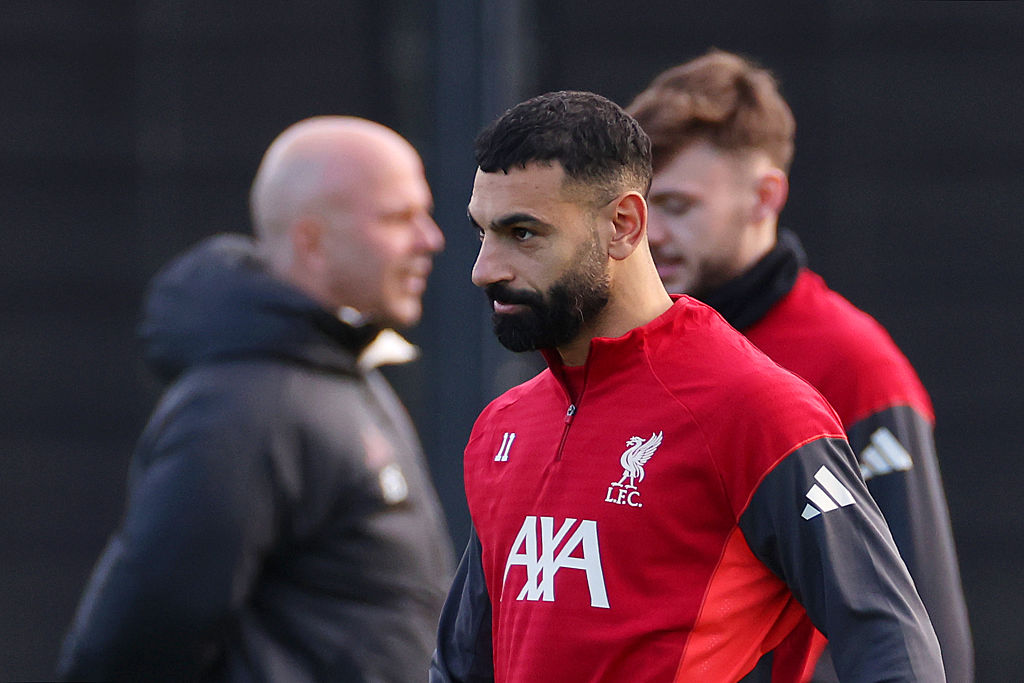Ivan Hasek’s double trouble
Ivan Hasek, the midfielder who skippered Czechoslovakia at Italia 90, has done something very brave. Or very stupid.
The newly elected Czech FA president has decided, after failing to persuade Slavia Prague manager Karel Jarolim to become the countryâÂÂs fourth national coach in 13 months, to do the job himself.
Adviser Karel Bruckner will help Hasek, who has successfully managed Sparta Prague.
Hasek: "Oh 'eck, what I have done"
Thirteen and a bit years ago, on a sunny afternoon at Wembley, I quietly cheered on the Czechs in the Euro 96 final. IâÂÂd had a soft spot for the Czechs ever since Lladislav Petras scored that stunner against Brazil in the 1970 World Cup.
What Petras started, Alexander Dubcek and Milan Kundera consummated. Dubcek was the hero of 1968âÂÂs doomed Prague Spring, a heroic effort to humanise the eastern bloc that was 21 years ahead of its time.
Kundera wrote the great novel The Book Of Laughter And Forgetting. As an impressionable youth in the 1970s and 1980s, I found the Czechs tragic, heroic, funny and sexy, even though IâÂÂd never met any.
The best features, fun and footballing quizzes, straight to your inbox every week.
I hadnâÂÂt even realised that Petras and Dubcek were actually Slovakian.
The boys of 1996 â especially Pavel Nedved, Patrik Berger, Karel Poborsky, and Vladimir Smicer â made a decent living from European football. Smicer, now back at Slavia Prague, won the UEFA Champions League with Liverpool while Nedved won the Ballon dâÂÂor.
Poborsky gave his name to the Poborsky lob (recreated for Phoenix From The Flames) an inspired impromptu bit of vision and trickery against Portugal that earned him a dream move to Old Trafford that turned nightmarish.
As a member of the Czech FAâÂÂs new ruling committee, PoborskyâÂÂs new mission is to help lead Czech football out of the doldrums.
The last national coach, Frantisek Straka - dismissed after one victory against Malta - believes Czech football is paying for nostalgia: âÂÂNone of us wanted to admit that one generation of players was on the way out. We forgot to give chances to certain players who went unnoticed.âÂÂ
The Germans, he said, had faced a similar problem but dealt with it: âÂÂWe just closed our eyes.nâÂÂ
The national sideâÂÂs decline has been marred by the kind of scandals that once disfigured England campaigns.
Six Czech players were photographed at a restaurant till 6.30am with three ladies of the night after losing 2-1 to Slovakia, a result that jeopardized their 2010 World Cup place.
All six players â including Milan Baros and Martin Fenin â were banned from the national team for life.
Bad boy: Milan Baros
No wonder Straka, in his brief reign, made a rousing appeal for players to feel proud to wear the Czech shirt.
Sadly his speech reminded me of Michael ParkinsonâÂÂs recasting of Dr JohnsonâÂÂs most famous aphorism: patriotism isnâÂÂt just the last refuge of the scoundrel, itâÂÂs also the last resort of a lost cause.
It is tempting to draw parallels with the Czech RepublicâÂÂs political troubles. Lacklustre as the Czech team have been, they look stellar when compared to the shambling incompetence that typified the CzechâÂÂs six-month presidency of the European Union.
Among the highlights was the Czech prime minister appearing naked and (a Czech tabloid gleefully suggested) âÂÂslightly arousedâ at Silvio BerlusconiâÂÂs villa and an official artwork called Entropa that depicted fellow EU member Bulgaria as a toilet.
The recent history of Czech football has seen the wrong kind of laughter and prompted much forgetting. But Hasek has some talent to call on.
Like 22-year-old midfielder Ludas Kalouda (aka the new Nedved) and 19-year-old striker Tomas Necid. Marek Suchy, Czech young player of the year in 2006, has shown promise as a centre-back with the versatility to play in midfield.
The two Czech stars who are genuinely world class are Petr Cech and, when he finally returns, Tomas Rosicky.
But Czech football is suffering from an affliction known, in Budapest, as âÂÂthe Hungarian syndrome,â a mysterious condition that prevents promising young, technically accomplished, footballers from ever fulfilling their potential.
In Hungary, the problem used to be that many young stars could earn more warming benches in AustriaâÂÂs lower divisions.
Young Czech internationals play their club football for Besiktas, CSKA Moscow, Dnipro Dnipropetrosvk, Viking (in Norway) and Wolfsburg. Tomas Pekhart, the prolific U21 striker signed by Spurs in 2006, may get some regular football now heâÂÂs back at Slavia Prague on loan.
In three years at Spurs, Pekhart didnâÂÂt start a single first-team game.
Pekhart struggles to shine
The good news is that, with Barcelona and Spain triumphing, the traditional Czech emphasis on possession football is back in fashion.
Midfielder Lubo Lapsansky describes Czech football as âÂÂalways about playing short balls, a lot of movement off the ball, trying to create the space for the players for the ball to be played into. It's a fairly tactical game. Players are required in any position, and need to be technically smart in advance.
"You drag the players out, and open up the space behind and you start attacking. You learn your patterns, you don't panic, you keep the ball till things open up. That's pretty much what Czech football is all about.âÂÂ
With predictable perversity, the fixture list has decreed that the first shot at redemption for the Czechs â and Hasek â comes against Slovakia in Bratislava this September.
Czech hopes of a place in South Africa are not completely dead â they trail runners-up Northern Ireland by five points with a game in hand.
The Bratislava game may tell us whether Hasek has, with his unprecedented dual role, shown a lot of guts or no sense at all.
---------------------------------------------------
FourFourTwo.com: More to read...
More Professor Champions League blogsBlogs HomeChampions League News
News Home
